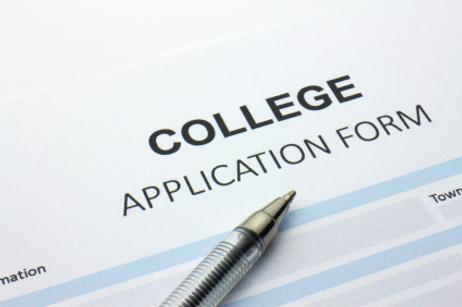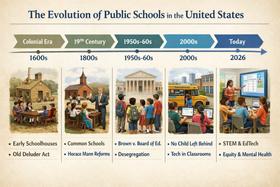Washington D.C. high schools have one of the lowest graduation rates in the country, standing currently at just 43 percent, according to the Huffington Post. Many efforts have been made to raise that number, but not all have received as much dialogue and debate as a recent proposal made by a DC council member. DC Council Chairman Kwame Brown (D) has proposed a new requirement for high school seniors in the city – that they show concrete evidence of college readiness before donning a graduation cap as they exit the hallowed halls of high school.
Taking Tests, Completing Applications
The Washington Post reports that Brown plans to introduce a bill to the city council that will require high school seniors to show college readiness before they graduate from high school. Under the new bill, students must take the SAT or ACT college entrance examination while still in high school. They will also need to apply to at least one college or trade school before graduation – even if the student has no intention of continuing his education after high school.
This video takes a look at a college admissions committee's deliberations.
The point behind the bill is to encourage students to complete high school by showing them what their opportunities might be after graduation. According to some education experts, taking college entrance exams and showing students and their parents how to interpret the results is an effective way to get students thinking about possibilities in higher education.
“I’m not saying everyone should go to college, but, my goodness, we have to get more young folks prepared to go to college if they want to go,” Brown told the Washington Post. “A lot of them don’t even know how to prepare to apply to go to college. They have never seen a college application. We have to set high expectations.”
Entrance Exam Requirements Not a New Idea
The concept of requiring high school students to take college entrance exams before graduation is not a new idea. Currently, 11 states boast that particular requirement, with Colorado, Illinois, Michigan, North Carolina, Kentucky, Wyoming, Tennessee, North Dakota, and Arkansas all requiring students to take the ACT during their junior year and other states requiring the SAT or providing students a choice between the SAT and the ACT.
According to a report at Education Week, some states offer the tests free of charge, and they even provide preparatory classes for students at no cost. In other states, certain districts might require students to take college entrance exams while other districts do not. The basic principle of encouraging students to look ahead is a motivating factor to finish what they started at the secondary level, which is at the core of the requirements in most of these states. This is particularly true of low-income or first-generation college students who may not even consider the possibility of higher education unless the path is clearly defined before them.
This video reports on an examination requirement for high school graduation in South Carolina.
“There’s a lot of evidence that many families, particularly low-income families, don’t know what’s involved in going to college and being ready to go to college,” Grover Whitehurst, Brookings Institution education scholar, told the Washington Post. “Making that information available while there’s still time to act has been shown to be important.”
Adding a New Variable
While several states include a college entrance examination as a part of high school graduation requirements, Washington, D.C., would be the first city in the country to mandate that students apply to at least one institution of higher education before graduation. According to a report at WLJA, that institution might include a four-year university, trade or vocational school, or even the military. To support his position, Brown points to the D.C. charter school Thurgood Marshall, which requires students to apply to at least five colleges before graduating. Thurgood Marshall also boasts a 100-percent graduation rate at this time.
Brown told the Washington Times that many D.C. students are not motivated to complete high school because they are unaware of the many opportunities that wait for them after graduation. Many students in the city don’t even consider the possibility of college until they complete an application and receive an acceptance letter.
“They want to do better for themselves,” Brown said in the Washington Times. “What they don’t have is anything that motivates them.”
Drawbacks to the Proposal
The Washington Post calls Brown’s proposal a “dramatic and provocative step that was praised for being well-intentioned, but faulted as unrealistic.” Opponents of the proposal assert that the decision to apply to college should be left to individual families rather than the state. Others believe that high schools should focus more on preparing students better for college through rigorous coursework rather than simply prepping them for the application process.
“I recognize that this is a good-faith effort to move forward, but I think it would be better to focus on what is actually under the control of the high school,” Barmak Nassirian, associate executive director of the American Association of Collegiate Registrars and Admissions Officers, told the Washington Post. “What good does it do for them to require students to ritualistically apply to college?”
While Whitehurst agrees with requiring the college entrance examinations, he believes that mandating the college application process is taking things a step too far. Whitehurst told the Washington Post that forcing students to complete college applications could make a mockery of the process.
This documentary from WRAL-TV in North Carolina examines high school dropout rates in that state.
“You don’t want people to go through a sham process of application, nor do you want to subject colleges and universities to receiving such applications,” Whitehurst said. “What good does it do for them to require students to ritualistically apply to college?”
Time will tell whether this exciting proposal is approved and the results it may have on Washington DC's dismal high school graduation rates.
Questions? Contact us on Facebook and Instagram. @publicschoolreview
#CollegeReadiness #HighSchoolGraduation #DCEducation #EducationPolicy #CollegeApplications #publicschools














